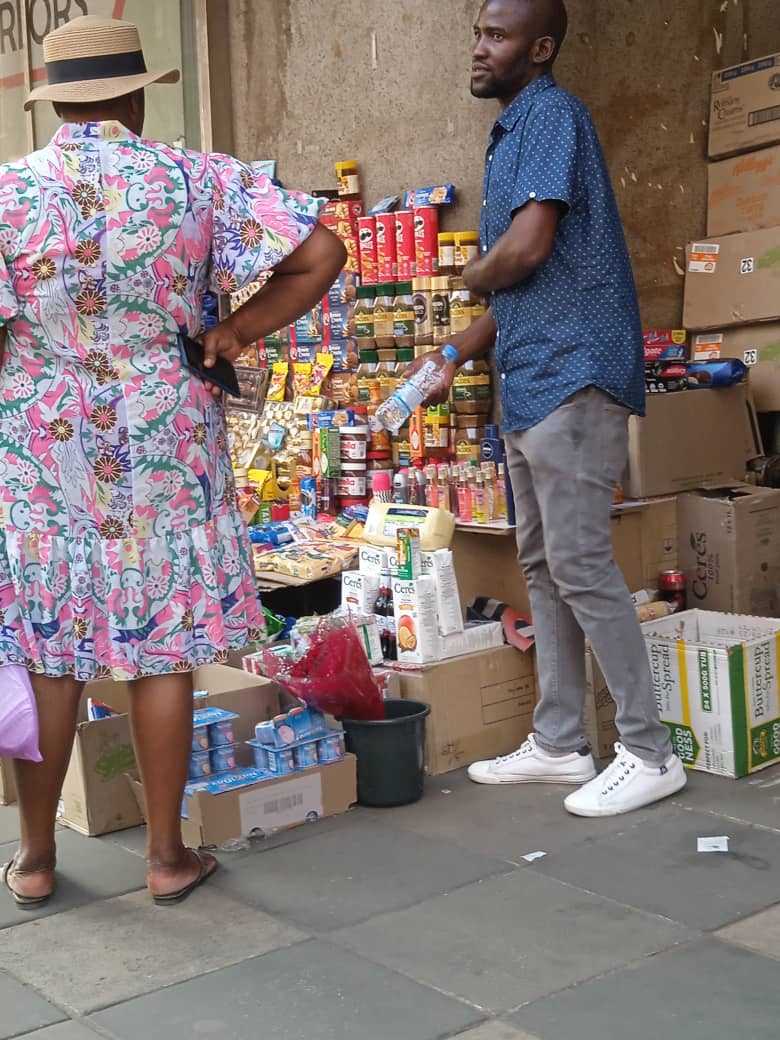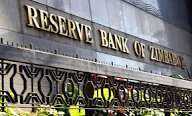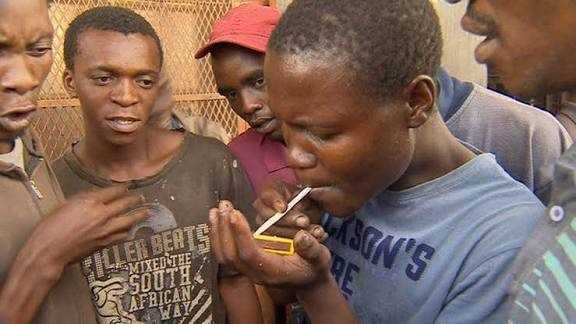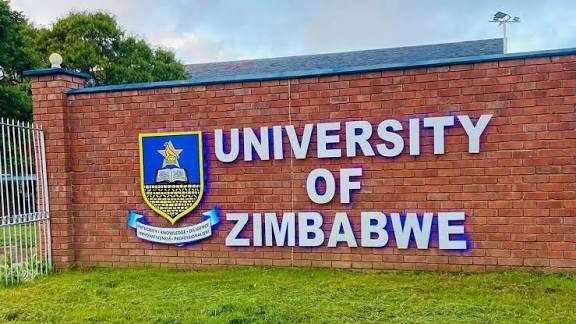Audrey Galawu and Patience Muchemwa

THE wholesale and retail trade sector has been hard-hit by the thriving informal sector, where smuggled goods including basic commodities are sold at relatively cheaper prices, resulting in job loses, company closures and lack of profitability among other things.
An investigation by Zim Now which included interviews with players in the sector, Zimbabwe Revenue Authority officials and scanning figures made available by the Zimbabwe Statistics Agency showed that the sector was bleeding.
Of the 74 140 formal jobs lost between July and September this year, 12.8 % (almost 9500) are in the wholesale and retail trade sector, the Zimbabwe Statistics Agency has reported.
This comes as large Zimbabwean retailers have asked government to intervene and save their businesses from the informal sector made up of small shops and vendors on the street, some of whom are selling smuggled goods.
OK Zimbabwe recently issued a public statement saying that their business is in trouble as they cannot compete with the informal sector.
Metro Peech & Browne, another large retailers has gone under corporate rescue with the rescue manager also citing pressure from the informal sector as one causative factor.
How much is involved?
This pair of writers counted over 50 small retailers commonly known as “tuck shops” in the quadrant bound Cameron, Bute, Rezende and Abercorn streets in downtown Harare.
Vendors selling various grocery items number in three digits in the Harare CBD alone with a good number selling their wares from car boots.
While they also stock local products, most of the traders sell imported or smuggled goods ranging from basics to luxuries.
Traders interviewed said fast moving items include Maq washing powder, Nivea body creams, Pringle/Lays crisps and Satiskin bubble bath.
Just from moving around and observing trade patterns over a day and evening, it is a fair to estimate that over one million USD dollars change hands daily in the informal grocery trade of Harare alone.
A bus driver who plies the Johannesburg-Harare route told these writers that smuggling is at an alarming scale meaning millions of dollars are being siphoned out of the Zimbabwe into South Africa every month.
“There is a house called Kwa Mai Maria at a nearby village (to Beitbridge Border Post) on the South African side where all the goods that need to be transported across the border unofficially are stored,” said the driver.
He said the goods are smuggled through illicit entry points along the border and the buses rendezvous with the smugglers along the highway in Zimbabwe.
“We pick up the goods at bus stops. So any cops passing will just assume that we are dropping passengers or just taking a break,” he said.
An anti-smuggling raid by authorities in 2022 netted 15 cross border buses in one day indicating that the smuggling scale is large.
Authorities overwhelmed

Zimbabwean authorities have no idea how much the country is losing in tax revenue due to uncontrolled informal retail sector activity which is directly linked to smuggled goods from neighbouring countries, the national revenue authority has said.
Zimra Corporate Communications head, Mr Francis Chimanda in response to questions from Zim Now on the margin of smuggling that the country faces said: “We would not know how much the country has lost due to smuggling as it refers to goods that are not in our possession, however, studies or investigations like the one you are conducting can give an indication of how much the country could have lost”.
Related Stories
Zimra figures for 2022 show that almost ZWL5 billion worth of goods was officially imported from South Africa and Zambia and the proliferation of small traders and vendors indicates that smuggled goods could be of the same or higher value.
Minister of Finance and Investment Promotion, Professor Mthuli Ncube said government was losing 25 percent revenue collections as a result of informalisation of the economy.
According to a Zimbabwe Statistics Agency 2022 report, 94.5% of the 6.3 million people defined as employed are working in the informal economy.
Estimates made in 2016 by the Governor of the Reserve Bank of Zimbabwe, valued the informal economy at US$4.7 billion.
Quarterly Informal Economy Survey by World Economics, London, indicated that, the size of Zimbabwe's informal economy is estimated to be 64.1% which represents approximately $42 billion at GDP PPP levels as of 2023.
Earlier this year the Zimbabwe Republic Police transferred every single member of Beitbridge staff to try and deal with systematic corruption in the border town.
The effects
The reported job losses and poor performances reported in the formal retail sector are the most apparent effect of smuggling and uncontrolled informal trading in Zimbabwe.
The Zimbabwe Congress Trade Union Secretary General Mr Japhet Moyo said the effects of untaxed goods openly feeding the informal sector is obvious.
“While no research has been made regarding the impact of smuggled goods, but it is well known that smuggled goods have a tendency of distortion on the local market and affect local manufacturing,” he said.
Confederation of Zimbabwe Retailers president, Denford Mutashu said most firms in the emerging businesses in the wholesale and retail sector, evade taxes, resulting in substantial revenue losses for the government.
Can the trend be reversed?
National Competitiveness Commission director -competitiveness Mr Brighton Shayanewako said the major challenge facing the economy is inflation and exchange rate instability, which in turn is adversely affecting the level of playing field by formal and informal players.
He said government should create a level playing field for industry players and also ensuring that arbitrage emanating from distortions is addressed.
“In the short to medium term, this requires the government/RBZ to refine the foreign exchange system towards a market determined to achieve stability. In the long run, the government has to come up with a de-dollarisation process towards the use of our local currency,” he said.
Economist Godfrey Kanyenze said it is up to government to bring the informal sector into regulated operation.
“Government should address potential pitfalls by communicating benefits, providing incentives, collaborating with local non-governmental organisations and sustaining impactful public awareness campaigns. Overall, these interventions can help the country’s informal sector thrive and contribute significantly to the nation’s socio-economic fabric,” he said.
Mutashu also agreed saying government should find “a means in which they can be embraced by authorities to formalise under terms that respond to their needs”.
Government says sink or swim
Ministry of Finance and Investment Promotion Permanent Secretary George Guvamatanga, has dismissed retailers’ concerns saying they must innovate to stay on top.
“In South Africa, the spaza market is R178 billion which is almost US$10 billion but I have never heard Shoprite or Checkers complaining that they have spaza shops. They have innovated around them,” he said.
This article was produced after an investigation funded through the Voluntary Media Council of Zimbabwe (VMCZ) Investigative Journalism fund on transnational crimes



















Leave Comments